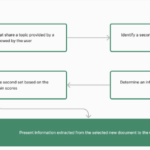Hey there, legal eagle. Want to take your law practice to the next level? It’s time to start strategizing your online presence. In today’s digital age, if your firm isn’t visible on search engines like Google, you might as well not exist. SEO for lawyers isn’t some marketing mumbo jumbo – it’s what will get you real clients and grow your business.
This article will walk you through the key SEO strategies you need to boost your rankings, drive more traffic to your website, and ultimately convert visitors into clients. We’ll explore how to optimize your content, build authority through link building, claim and enhance your business profiles, run pay-per-click ads, and analyze the metrics that really matter. The courtroom isn’t the only place you need to make a strong case – your online presence demands the same compelling arguments and evidence.
Ready to rule the rankings? Let’s dive in. Your firm’s future clients are out there searching – you just have to show up on their screens. With the right SEO approach, your practice will be unstoppable.
What Is SEO and Why It Matters for Law Firms
If you want your law firm to thrive in today’s digital age, you need to understand search engine optimization or SEO. SEO helps boost your visibility in search engine results pages (SERPs) like Google, allowing potential clients to find you more easily online.
As a lawyer, you’re in a competitive industry. Many people search online to find legal services, so ranking high in SERPs is crucial. SEO helps get your law firm’s website on page one of search results for keywords related to your practice areas and location. This means more targeted traffic to your site and more leads.
Some effective SEO strategies for law firms include:
- Optimizing your website content. Include important keywords in page titles, headers, and content. Write in a conversational tone for both search engines and readers.
- Building quality backlinks. Get other reputable websites to link to yours. Guest blogging on industry sites is a great way to earn high-value backlinks.
- Improving your page speed. Fast loading websites rank higher and keep visitors engaged. Compress images and remove any clutter.
- Establishing yourself as an authority. Start a blog to demonstrate your knowledge. Link to authoritative sources. Be active on legal forums and networks.
- Ensuring mobile-friendliness. More and more people search on their phones. Your site needs to be optimized for mobile or you’ll miss out on opportunities.
- Monitoring rankings and results. See how you rank for target keywords and check how people are finding you. Make changes to improve over time.
SEO for law firms requires an ongoing effort but the rewards of increased visibility and credibility are well worth it. By incorporating some tried-and-true strategies, you’ll be winning more clients in no time.
How to Optimize Your Law Firm’s Website for SEO
To attract more clients through search engines like Google, you need to optimize your law firm’s website. Here are some of the key things you can do:
Update Site Content Regularly
Fresh, relevant content keeps search engines coming back to your site. Aim for posting one new blog article each week discussing recent laws, legal issues, or your areas of expertise. Mention keywords related to your practice areas and location. Over time, these posts will accumulate, strengthening your site’s authority.
Use Location-Based Keywords
Include your firm’s location and nearby cities in page titles, headings, content, and meta descriptions. For example, “Chicago Personal Injury Lawyer” or “Legal Services in Springfield, Illinois”. Local clients are searching for lawyers in their area, so geography-focused keywords are important.
Build Internal Links
Link to related content within your site. For example, link from your bio page to your service pages or from a blog post to your contact page. This connects your content and passes authority from page to page. But don’t overdo it, aim for 2 to 3 internal links per page.
Optimize Page Load Speed
A fast website leads to higher rankings and better user experience. Minimize plugins that slow your site down. Shrink image file sizes. Consider using a content delivery network to speed up load times. Page load speed is a ranking factor, so optimize whenever possible.
###Submit a Sitemap to Google
A sitemap helps search engines discover all your website pages. Submit an XML sitemap through Google Search Console to point search bots to your important pages, blog posts, service and location pages. This makes it easier for people to find you when searching for a lawyer in your city or practice area.
With the right technical and on-page optimizations, your law firm’s website can attract more clients through improved search engine rankings and visibility. Focus on fresh content, location-based keywords, internal linking, fast page load speeds, and submitting a sitemap to Google. Over time, your persistence will pay off through greater traffic, leads, and new clients.
Improving Local SEO for Your Legal Practice
To boost your law firm’s local SEO, focus on optimizing three key areas: your website content, backlinks, and online reviews. By improving these facets, you’ll raise your visibility in local search results and attract more clients from your area.
Website Content
Ensure your website includes location-specific content like your full address, phone number, and a contact page with an easy-to-use form. Use your city and state names prominently on your homepage and in page titles and meta descriptions. Publish blog posts and web pages targeting issues that affect people in your region. Mention nearby landmarks, events, sports teams, and community organizations to establish your local expertise.
Backlinks
Build quality backlinks from other local websites like professional organizations, nonprofits, newspapers, and government pages in your city or county. See if they’ll add your law firm to their directory or resources page. You might write guest posts for local blogs in exchange for a backlink. Get involved in relevant local chambers of commerce and network at events to make personal connections that could lead to valuable backlinks.
Online Reviews
Positive online reviews from real clients in your area will boost your local ranking and credibility. Make it easy for clients to review your firm on websites like Google My Business, Yelp, and Avvo. Send an email after a case concludes asking happy clients for an honest review. Respond to all reviews promptly in a professional and helpful manner. If you get a negative review, address it respectfully by taking responsibility, apologizing, and outlining how you’ll improve.
By optimizing these three facets of your online presence, you’ll strengthen your firm’s local SEO and attract more clients from your community. Keep updating and improving your local SEO strategy, and you’ll continue to increase your visibility and build trust within your region.
Optimizing Content and Blogs for Maximum Visibility
Optimizing your law firm’s blog content and web pages for search engines is key to improving visibility and attracting new clients. Focus on the topics and issues your potential clients are searching for, like “employment law attorney” or “best DUI lawyer.” Include location-specific terms for your city or county as well.
Keywords
Use important keywords, phrases, and related terms throughout your content, especially in titles, headers, and the first and last paragraphs. For a family law practice, keywords might include:
- Divorce attorney
- Child custody lawyer
- Alimony lawyers
- Prenuptial agreement law firm
Aim for a keyword density of 3 to 5% to avoid over-optimization penalties from search engines.
Compelling Content
Publish blog posts and web content on the legal issues and topics your target clients care about. For example, if you handle personal injury cases, write about “What to do after a car accident” or “Slip and fall injury claims.” Keep your content up-to-date with the latest laws and procedures.
Use an engaging and helpful tone, with real-life examples when possible. Optimize content for readability on mobile devices since many people search on their phones. Keep sentences and paragraphs short, around 1 to 3 sentences.
Internal Linking
Link to other relevant content on your website. For example, if you mention child custody in one post, link to your child custody legal services page. This connects your content and passes “link juice” to the rest of your site to boost rankings.
Technical SEO
Make sure your law firm’s website follows best practices for SEO. Have a mobile-friendly responsive design, fast loading speeds, SSL security, and an XML sitemap to help search engines index all of your content.
Using SEO for law firms and optimizing your online content is an ongoing process, but by focusing on keywords, content, internal linking, and technical SEO, you’ll gain greater visibility in search engines and attract more clients seeking your legal services.
Leveraging Paid Search (PPC) to Supplement Organic SEO
Paid search, also known as pay-per-click (PPC) advertising, is a great way to drive targeted traffic to your law firm’s website. With PPC, you bid on keywords related to your practice areas and target clients searching for legal services. When people search for those keywords, your ads appear at the top of the search results page.
Bidding on High-Value Keywords
Focus your PPC campaign on keywords that your ideal clients are likely searching for, like “family law attorney” or “tax attorney Atlanta.” You’ll want to bid on a mix of broad, general terms as well as more specific long-tail keywords. Monitor which keywords are driving the most relevant traffic and conversions, then adjust your bids accordingly.
Optimizing Your Ads
Well-optimized PPC ads can achieve a high click-through rate, driving more people to your website. Include your law firm’s name, location, and service offerings in the ad headline and text. Highlight benefits like free consultations or 24/7 availability. Use compelling language and a clear call-to-action, like “Call now for a free case review.”
Landing Pages Matter
Once someone clicks your ad, they should be taken to a customized landing page on your website focused on the service they searched for. The page should capture their information through a contact form to generate leads. Be sure any mentions of your practice areas, locations, or names match the ad that brought them to your site. Consistency builds trust and credibility.
Monitor, Measure and Optimize
Check your PPC campaign regularly to see what’s working and make changes to improve results. Look at metrics like impressions (how often your ads were shown), click-through rate, cost-per-click, and conversion rate. See which keywords and ads are performing best, then allocate more of your budget to them. Cut underperforming ads and keywords. Make incremental changes to continually optimize your campaign over time.
PPC advertising, as part of an overall SEO strategy for law firms, is an effective way to increase targeted website traffic, leads and new clients. With continuous optimization, a PPC campaign can become a major driver of growth for your legal practice.
Tracking and Measuring Your SEO Efforts
Tracking your SEO efforts is crucial to understanding what’s working and what’s not. Measuring key metrics will show you how people are engaging with your content and help guide your strategy.
Monitor Search Rankings
See where your site ranks for target keywords in Google and other search engines. Aim for page 1 results, especially in the top 3 spots. Check rankings regularly to see how you’re trending and the impact of recent changes.
Track Organic Traffic
Organic traffic refers to visitors who find your site via search engines. See how many people are coming to your site this way and which pages they’re accessing. Growing organic traffic is a key sign your SEO efforts are effective.
Analyze Click-Through Rates
Click-through rate (CTR) shows how often people click your listing in search results. A higher CTR means you’re ranking well and have an attractive listing. A low CTR could indicate your title, description and URL need optimizing.
Check Dwell Time and Bounce Rates
See how long visitors stay on your site and their bounce rate, which measures how many leave after viewing one page. High dwell times and low bounce rates mean people are engaged with your content.
Monitor Backlinks
Backlinks are links to your site from other authoritative websites. More high-quality backlinks can improve your rankings and credibility. Check what sites are linking to you and work to build more strategic backlinks over time.
Review Google Search Console
Search Console provides insights into how Google views and indexes your site. Check for any errors or warnings and see valuable data like click-through rates, top search queries and pages, and more. Address any issues to keep your site in good standing with Google.
Keeping a close eye on these key metrics will help determine if your SEO tactics are delivering real results. Make adjustments as needed to your content, technical elements, and link-building strategies. Consistently optimizing based on data-driven insights is key to ongoing success. With time and practice, you’ll get better at interpreting the numbers and nurturing your SEO program.
Common SEO Mistakes Law Firms Make
Common SEO Mistakes Law Firms Make
As a law firm, focusing on search engine optimization (SEO) is crucial to gaining new clients and growing your practice. However, many firms make simple mistakes that hamper their SEO efforts. Avoid these common blunders to boost your search rankings and drive more traffic to your website:
Lack of Keyword Research
You need to determine which terms potential clients are searching for, like “divorce attorney Dallas” or “car accident lawyer Chicago”. Then, incorporate those keywords into your page titles, headers, and content. Without research, you’re just guessing and unlikely to rank well.
Duplicate Content
Publishing duplicate content on your website confuses search engines and dilutes your rankings. Ensure blog posts, web pages, and more are 100% unique. If re-using content, re-write it or use canonical tags to specify the preferred URL.
Slow Load Times
If your website loads slowly, visitors will abandon it and search engines won’t rank it as highly. Compress images, minimize redirects, and optimize your code to improve speed. As a law firm, a fast, responsive website is a must.
Not Updating Content
Stale, outdated content is penalized by search engines. Regularly update service pages, blog posts, news announcements and more. Add fresh content on a consistent schedule to give search engines a reason to crawl your site again.
Not Building Quality Backlinks
Backlinks from authoritative websites boost your search rankings. Seek out guest blogging spots, get involved in your local chamber of commerce, sponsor charities and write for industry publications. Build relationships and earn high-quality backlinks over time.
By avoiding these common mistakes and focusing on an effective SEO strategy, your law firm can gain greater visibility online, earn more high-quality traffic and ultimately win new clients. With some time and effort, you’ll outrank the competition and grow a successful practice.
Emerging SEO Strategies and Trends for Legal Firms
Emerging SEO Strategies and Trends for Legal Firms
To stay ahead of the competition, law firms need to keep up with the latest SEO strategies and trends. Here are a few of the most important emerging areas to focus on:
Voice Search Optimization
More people are using voice assistants like Siri, Alexa and Google Assistant to search online. Optimize your content for voice search by using a conversational tone, focusing on questions and answers, and including location-based keywords.
Featured Snippets
Google “featured snippets” are short summaries of content that appear at the top of search results. To rank for featured snippets, create listicles, FAQs, and “how to” content that thoroughly answers common questions. Use headers and structured data to highlight the key elements.
Video Marketing
Video is dominating search results and social media. Start a YouTube channel to post explainer videos, case study videos, video FAQs, and more. Videos build trust and help you rank higher in search. Embed videos on your website and optimize them for search with keywords, transcripts, and video sitemaps.
Local SEO
If your firm serves clients in a specific geographic area, focus on local SEO. Build location pages on your site, get listed in local business directories like Google My Business, and rank for location- based keywords. Track your local rankings and work to improve visibility in local map packs and search.
Link Building
Acquiring high-quality backlinks from authoritative sources remains one of the most important SEO strategies. Build links by contributing guest posts to industry blogs, creating partnerships, sponsoring local events, and getting media coverage. Diversify link sources and anchor text to create a natural link profile.
Keeping up with changes in SEO will ensure your law firm has an competitive edge to gain new clients. By optimizing for voice search, creating engaging video and featured content, improving local visibility, and building high-value links, you’ll boost your search rankings and attract more targeted traffic. The firms that embrace innovation in SEO will thrive in today’s digital landscape.
SEO Law FAQs: Answering Your Top Questions
You probably have a lot of questions about search engine optimization (SEO) for law firms. SEO can seem complicated, but we’re here to demystify it and provide some helpful tips for optimizing your website.
What is SEO for lawyers?
SEO for lawyers involves optimizing your law firm’s website to improve its ranking in search engine results pages (SERPs) for relevant keywords. The higher your ranking, the more likely you are to attract potential new clients searching for legal services online.
How can SEO benefit my law firm?
SEO provides many benefits for law firms:
-Increased website traffic. Ranking higher in search results leads to more people finding and visiting your website.
-Improved visibility. SEO makes your law firm more visible to people searching for legal help in your area of expertise.
-New client leads. With more traffic and visibility, your law firm has a better chance of generating new client leads and gaining new business.
-Credibility. A well-optimized site conveys a reputable, technologically-savvy image which builds credibility and trust.
What SEO strategies should I focus on?
Some of the most effective SEO strategies for law firms include:
-Keyword research. Identify keywords people use when searching for your legal services. Optimize your content for those keywords.
-Content creation. Publish helpful blog posts, videos, and web pages discussing your areas of law. This provides value to visitors and ranks well in search engines.
-Technical SEO. Make sure your website has a mobile-friendly responsive design, fast loading times, and an SSL certificate. This provides a good user experience and impresses search engines.
-Link building. Build high-quality backlinks from other authoritative websites to establish your credibility and improve search rankings.
-Local SEO. Optimize your site for searches within a specific geographic area. This can drive more local traffic and lead generation.
SEO does require time and effort, but the rewards of increased visibility, credibility, and new clients make it well worth the investment for any law firm. We hope this helps answer some of your questions about SEO for lawyers. Let us know if you have any other questions!
Conclusion
So there you have it, a few easy ways to boost your law firm’s online presence and attract more clients through search engine optimization. Implementing even a few of these SEO strategies for lawyers can make a big difference in how potential clients find you online and perceive your firm. Don’t miss out on valuable opportunities to connect with clients searching for legal help on the web. Take steps now to claim your spot at the top of search results and watch your firm thrive. The digital age is here, and savvy law firms that adapt will come out on top. What are you waiting for? Start optimizing your online marketing today.



















